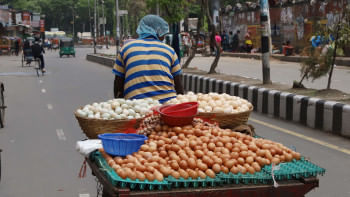Failed promises and futile policies

It is frustrating that in spite of making numerous promises and the prime minister herself giving directives to bring down commodity prices, the government has failed miserably to give any semblance of relief to people. With prices of most essentials already through the roof, vegetable prices have once again risen over the last one week, which is especially disappointing as, historically, vegetables tend to be cheaper during winter.
Despite being the peak season, papaya is priced at Tk 30-50 per kg in Dhaka's kitchen markets. Yet, farmers who grow the produce are getting barely half of that. The same applies for other vegetables such as carrots, coriander and radish. Where is the rest of the profit ending up, then? Vegetable sellers allege that they are not making much after paying a high price for the produce to wholesalers. Meanwhile, wholesalers claim that they are not making much either after paying for transportation and other extortion fees to transport the goods to the market. The picture that we get from all this is that during their transit from the farms to the kitchen markets, the prices of almost all vegetables are doubling or tripling. This shows that a poor supply chain system is mainly to blame for the price hike—along with other factors such as extortion fees, lack of proper storage facilities, communication system, etc.
Parallel to this, prices of onions and eggs have also risen. Within a one-week span, local and imported onion prices have gone up by 23 and 26 percent, respectively. Ever since the Indian government stopped onion exports, its price in Bangladesh has been on the erratic side. The fact that despite importers getting the green light to import onions from other countries, its price has remained this elevated, is unacceptable. The price of eggs has also risen with an increase in the Indian market, and importers have been urging the government to lower import duties so that the prices can be brought down.
However, as we have seen previously, in the absence of proper market monitoring by the government, even with lower import duties, businesses often take advantage of information asymmetry or any loopholes they can find to keep prices high and make killer profits. Therefore, the government must take a holistic approach to bring the prices of essentials under control. That includes improving the supply chain, getting rid of leakages—in the form of extortions, hoarding, and other corrupt practices—importing items before shortages occur, and making sure that import duties for essentials are brought down under the condition that domestic prices will follow suit. People have had enough of empty promises.


 For all latest news, follow The Daily Star's Google News channel.
For all latest news, follow The Daily Star's Google News channel. 










Comments